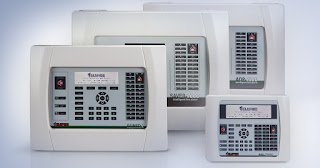Addressing the Mystery: Conventional vs. Analogue Addressable Fire Alarm Systems
In the realm of fire safety, choosing the right fire alarm system is paramount. Let's unravel the differences between conventional and analogue addressable systems, exploring their advantages, disadvantages, and suitability for various establishments.
Conventional Fire Alarm Systems: Simplified Security
Conventional fire alarm systems segment buildings into zones, each containing multiple detectors and call points. When activated, these systems indicate the specific zone affected, aiding in identifying the fire's location. They are cost-effective and straightforward, ideal for smaller establishments with uncomplicated layouts.
Analogue Addressable Fire Alarm Systems: Precision and Complexity
Analogue addressable systems assign a unique address to each device, facilitating precise identification of alarm activations. They offer advanced features and are adept at detecting minor changes in environmental conditions. However, their complexity and cost are higher than conventional systems.
Advantages and Disadvantages
Conventional Fire Alarm Systems
Advantages: Cost-effective, simple installation, compatible with peripherals from various manufacturers.
Disadvantages: Limited precision in pinpointing alarms, zoning restrictions, less suitable for large or complex establishments.
Analogue Addressable Fire Alarm Systems
Advantages: Precise alarm pinpointing, advanced features, adaptable to complex environments.
Disadvantages: Higher cost of acquisition and maintenance, programming complexity, limited compatibility between manufacturers.
Choosing the Right System
Consider the size, layout, and complexity of your establishment. Conventional systems offer simplicity and affordability but may lack precision for larger buildings. Analogue addressable systems provide advanced features but come with higher costs and complexity.
Conclusion
Selecting the appropriate fire alarm system requires careful consideration of your establishment's needs and budget. Whether opting for the simplicity of conventional systems or the precision of analogue addressable systems, prioritize safety above all.
Remember, investing in fire protection is investing in the safety of lives and property.
For further insights, consult our detailed guide on fire alarm systems.
By understanding the differences between conventional and analogue addressable fire alarm systems, you empower yourself to make informed decisions in safeguarding your establishment against fire hazards.



Comments
Post a Comment